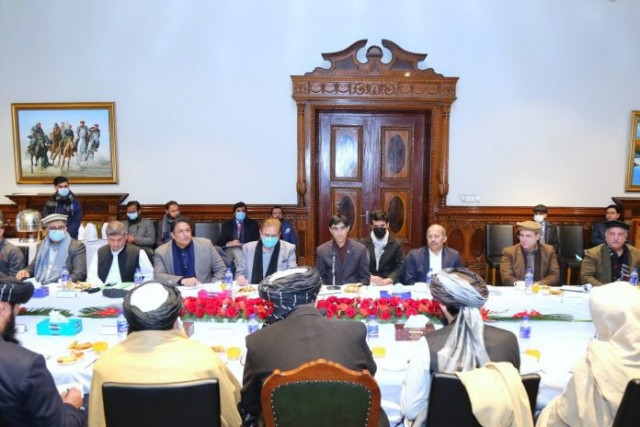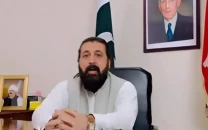NSA, Taliban govt discuss humanitarian assistance to Afghans
Dr Moeed discusses Pakistan’s proposals for deepening economic engagement during the two-day visit to Kabul

National Security Adviser (NSA) Dr Moeed Yusuf undertook a two-day visit to Kabul to discuss with the Afghan leadership, the humanitarian requirements and Pakistan’s proposals for deepening economic engagement to overcome the current challenges their country was facing.
During the visit, the NSA, who also heads Afghanistan Inter-Ministerial Coordination Cell (AICC), called on Afghanistan’s Acting Deputy Prime Minister Mullah Abdus Salam Hanafi and the Acting Foreign Minister Mullah Amir Khan Muttaqi to discuss the current situation in Afghanistan and strengthening of bilateral relations between the two countries.
“The visit yielded substantive outcomes in terms of forward movement on trade facilitation and social sector support,” said a statement issued by the government on Sunday.
Both sides also reiterated their commitment to the early completion of three major connectivity projects, CASA- 1000, TAPI, and the Trans-Afghan Rail project.
Read more: A pragmatic approach toward Afghanistan
“Both sides agreed to establish a national level coordination mechanism for enhancing facilitation at border crossing points. They also agreed to initiate barter trade, modalities for which will be worked out immediately,” it said.
Special Envoy for Afghanistan Ambassador Muhammad Sadiq and senior officials from relevant ministries were part of the delegation.
Dr Moeed Yusuf also held delegation-level meetings with other relevant Afghan ministers and senior officials dealing with humanitarian and economic issues.
Also read: How Afghanistan may affect Pakistan
During the visit, Pakistan offered Afghanistan capacity building and training support in multiple sectors including health, education, banking, customs, railways and aviation among others.
Afghanistan and Pakistan emphasised their commitment to ensuring peace and stability in both countries.
Dr Yusuf thanked the interim Afghan government for their warm hospitality.



















COMMENTS
Comments are moderated and generally will be posted if they are on-topic and not abusive.
For more information, please see our Comments FAQ